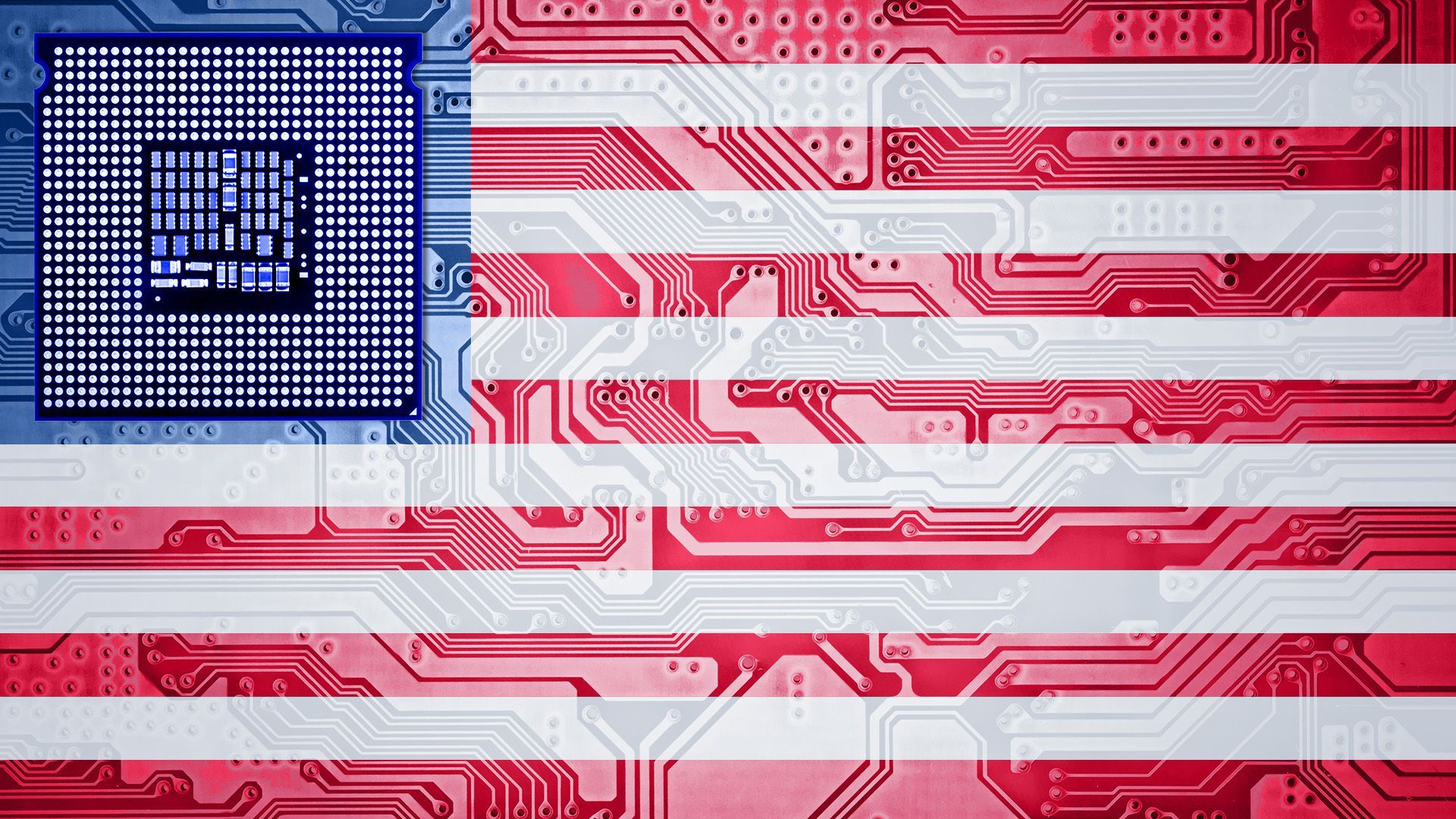Home » World News »
The Biden administration is imposing limits on semiconductor exports to China
Illustration: Shoshana Gordon/Axios
The Biden administration on Friday announced new export restrictions aimed at hobbling China's ability to make advanced semiconductors, escalating the tech conflict between the world's two biggest economies.
Why it matters: The move is expected to reshape the interplay between American and foreign chipmakers, potentially undermining China while also heightening the risk of a countermove.
The big picture: The decision reflects the increasing concern in the U.S. that China is using American technology to advance its military ambitions.
- Advanced chips are viewed as crucial to China's development of new weapons, the Wall Street Journal and New York Times reported.
- "This will set the Chinese back years," Jim Lewis, a technology and cybersecurity expert at the Center for Strategic and International Studies, told Reuters.
Zoom in: In the U.S., the export limits could hurt companies that previously relied on sales to China, though such relationships have become politically fraught in recent years.
- The imposition of restrictions "remains a key risk" to wafer fab equipment production in the U.S., Bank of America analyst Vivek Arya said Friday in a research note.
- The VanEck Semiconductor ETF, which seeks to track the performance of 25 large semiconductor companies, was down more than 5% on Friday afternoon. Part of that drop, however, was attributable to disappointing preliminary third-quarter results from Advanced Micro Devices, which warned of weakening demand for PCs.
What they're saying: "We are assessing the impact of the new export controls on the U.S. semiconductor industry and working with our member companies and the U.S. government to ensure compliance," the Semiconductor Industry Association said in a statement.
- "We understand the goal of ensuring national security and urge the U.S. government to implement the rules in a targeted way — and in collaboration with international partners — to help level the playing field and mitigate unintended harm to U.S. innovation.”
The other side: "What the U.S. is doing is purely ‘sci-tech hegemony,'" Chinese Embassy spokesperson Liu Pengyu told the Journal. "It seeks to use its technological prowess as an advantage to hobble and suppress the development of emerging markets and developing countries," including China.
Source: Read Full Article



